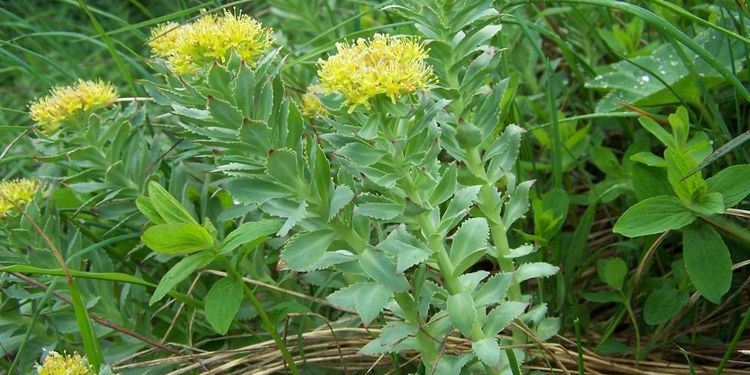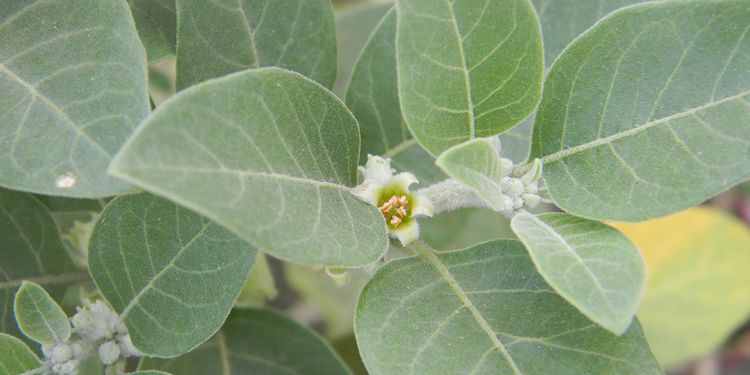All About Herbal Adaptogens

Have you ever wished that there was a magic potion you could take to make you immune to the effects of stress? Something that would take away that anxious, out-of-control feeling you get when you’re juggling way too many things at once? Or better yet, something to help you combat the exhaustion of complete burn-out?
I’ve often wished for such a potion. And I think that’s why I find myself so fascinated by herbal adaptogens. While they don’t technically make you immune to stress, adaptogens are herbs that help you have a healthier response to stress.
David Hoffman, an herbalist and author of Medical Herbalism: The Science and Practice of Herbal Medicine, says:
“Adaptogens reinforce the nonspecific power of the body’s resistance against stressors. They increase its general capacity to withstand stressful situations, and hence guard against disease caused by over stress. The general aims of treatment with adaptogens are to reduce stress reactions during the alarm phase of the stress response and to prevent or at least delay the state of exhaustion, and thus provide a certain level of protection against long-term stress.”1
This definition sounds a lot like that magic potion that we’ve been looking for!

How Adaptogens Work
The jury is still out on the exact mechanism of action of adaptogenic herbs. This is likely because rather than having a specific turning off or turning on function like most conventional therapeutic agents, adaptogen action can’t really be reduced to one cause-and-effect action.
If you’ve been following my entries, I recently wrote of misconceptions about adrenal fatigue and that the problem actually lies in a continually activated Hypothalamic- Pituitary-Adrenal (HPA) Axis. Although how they work isn’t exactly understood yet, adaptogens are thought to influence and modulate this stress activating system.2
This theory would explain the paradoxical effects of adaptogens on the body. They’re stimulating and sedating at the same time, and they can have different effects depending on different individual circumstances.
I’ve found that there’s a spectrum of adaptogenic activity; some tend to be more stimulating while others can be more sedating. The effects of one herb can be different for different individuals.

My Choice Adaptogens and When to Use Them
Despite my recent discovery of the term adaptogen, I have a longer history with their use.
When I was recovering from Lyme disease, I was desperate to get over my chronic fatigue and anxiety. I spent most of my hours researching ways to combat fatigue when coffee wasn’t an option due to my anxious tendencies and very low tolerance for caffeine.
I was listening to Dr. Sarah Gottfried’s book, The Hormone Cure, on tape on the way to work one day during this period, and she spoke of the energizing yet stress-relieving effects of Rhodiola rosea, a classic adaptogenic herb.
From Dr. Gottfried’s description, it sounded like something I had to have, and I went out to get some that day. I took my first dose the next day, and I still have a vivid memory of the subsequent clearing of my mental fog and the new pep in my step. Since this experience, Rhodiola has earned a permanent spot in my heart and in my tincture cabinet.
I’ve also expanded my adaptogen horizon to include other herbs, each with their own signature effects. Read on to learn a little bit more about Rhodiola and two of my other favorite adaptogens.

Rhodiola rosea, “Arctic Rose, Golden Root”
As its common name implies, Rhodiola rosea is a succulent that flourishes in cold arctic climates. The root of this plant is typically used for medicine.
Rhodiola’s stress-modulating action is attributed to its mix of plant chemicals known as phenylpropanoids, including salidroside and rosavin. Interestingly, these chemicals are biomarkers of a stress response in the herb itself.
Dr. Marisa Marciano, RH, ND, summarizes some of the research supporting Rhodiola’s beneficial effect on the nervous system.
Marciano describes Rhodiola as neuroprotective, neurotransmitter-sparing, and opioid-activating. There’s evidence that Rhodiola’s plant chemicals interact with key enzymes that boost critical neurotransmitters like serotonin, dopamine, and norepinephrine. This optimizes their interaction with critical structures like the hypothalamus.
Research is starting to show that therapeutic use of Rhodiola is effective in cases of depression, anxiety, and even chronic fatigue. There’s also evidence that Rhodiola has cardiotonic effects through its influence on critical signaling molecules in heart tissue. This lines up with its energetic and traditional use as a remedy for an ailing or broken heart.
Rhodiola’s effects are dose dependent. There’s a threshold for its stimulating effects, and too much may actually be sedating depending on the individual.
Rhodiola helps clear my mind and increases my energy, motivation, and focus. I like to use it right before a test or as a pick-me-up after lunch when I tend to have a dip in energy.

Withania somnifera, “Ashwagandha”
This next herb is another classic adaptogen that is very commonly utilized to promote longevity in Ayurvedic medicine. Ashwagandha is a shrubby plant belonging to the nightshade family. While nightshades have a bad rap when it comes to autoimmune or inflammatory conditions, this nightshade is definitely worth considering for its beneficial effects on nerves.
While Rhodiola sits closer to the stimulating end of the adaptogen spectrum, Ashwagandha is positioned closer to the sedating end (hence its species name “somni,” the Latin root for sleep).
Marciano emphasizes Ashwagandha’s ability to affect the nervous system, preventing the negative consequences of chronic stress. True to its adaptogen characterization, Ashwagandha can tone down our response to stress and offer uplifting effects.
It has been used traditionally in Ayurvedic medicine to increase mental clarity, longevity, and immune function. Research has also shown that it has anti-cancer activity and a high iron content that may help combat anemia.
I take Ashwagandha in divided doses throughout the day to take the edge off of those little daily stressors, normalizing my cortisol (stress hormone) output throughout the day. I find that if I do this consistently, I don’t end my day in bed wired and tired; I’m able to get to sleep a little bit easier.

Panax ginseng, “Korean Ginseng”
Like Ashwagandha, Korean ginseng has been used for centuries in traditional eastern medicine in India and China. Its genus name “Panax” is derived from the Greek word for “cure-all.” This is a testament to the life-giving and rejuvenating quality of this herb.
Ginseng is definitely on the stimulating end of the adaptogen spectrum. It’s sometimes referred to as a nervous system stimulant rather than a tonic like Rhodiola and Ashwagandha. But despite its stimulating qualities, there’s still an underlying stress- and immune-modulating action that helps to build resilience to stress.
One of ginseng’s main chemicals is steroidal saponins known as ginsenosides. According to Marciano, the ginsenosides exert their stimulating actions by mimicking the effects of cortisol, our natural stress hormone, and activating neurotransmitters like dopamine and glutamate. This effect is coupled with an increase in neurotransmitters like GABA and serotonin, which are more inhibitory to the nervous system.
In addition, ginseng has demonstrated an ability to lower blood sugar and scavenge free radicals that cause oxidative stress and inflammation.
I use Korean ginseng when I need to maintain my mental stamina in the busier weeks in school. It’s not something I take every day like Rhodiola or Ashwagandha, but it’s very useful during midterms or final exams (especially for late-night cramming) when I need an extra energy boost.

Stress Management is Fundamental to Sustainable Stress Resilience
As I’ve mentioned before, herbs are wonderful supplements to complement a healthy diet and lifestyle.
But even the magic of adaptogenic herbs can’t replace a healthy diet and lifestyle. Ultimately, your stress resilience will be determined by the kinds of foods you use to fuel your body and the types of stress management practices you have in place.
If you’re going to experiment with any of the herbs mentioned here, it’s important that you consult with a practitioner who’s knowledgeable about herbs and possible medication interactions or contraindications.
Stay tuned for a post on stress management practices for a long-lasting mastery of your stress response!
